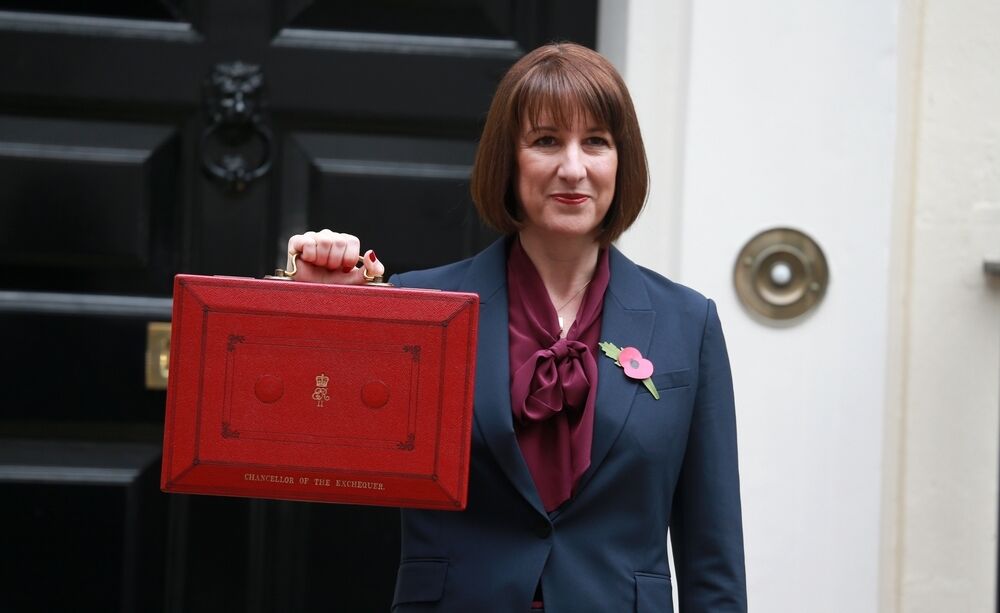Should the Chancellor break her promise on tax rises?

As the Chancellor Rachel Reeves prepares her Budget, one question looks set to dominate domestic politics for the next few weeks: should she keep her election promise not to raise taxes, or to admit that circumstances demand a change of course?
Indeed, this week at PMQs, that was the trap which the Prime Minister Keir Starmer was facing, subjected to pointed questions about government fiscal strategy and the possibility of such tax rises. While some commentators noted that Starmer avoided a definitive commitment that tax rises would not happen, the exchange underscored the pressure on government finances and the limitations of election-pledge rigidity.
For each of us, this is a live reminder that policy debates are not academic. The questions raised at the dispatch box about taxation, spending, and sustainability are the same questions that confront families, communities and congregations in everyday life.
But while the question is being portrayed as primarily an economic decision, I don’t believe it is solely an economic one. It is also a question of politics and leadership, of morality and theology.
For Christians who care about public life, taxation is about more than revenue. It reveals what kind of society we wish to build, and how faithfully we reflect God’s character in our shared life. And keeping or breaking an election promises goes to the heart of what it means to be a good leader and the state of our political system and debate.
But as Christians, we also have an opportunity to bring theological reflection and moral clarity into this discussion: are the Government’s Election pledges best fulfilled by holding the rate of income tax, National Insurance and VAT flat, or by sustaining the common good? Are we more faithful to neighbour-care by cutting services to avoid tax rises, or by raising revenue to protect the vulnerable?
Below are some of my personal reflections as rumours continue to mount about what levers the Chancellor might pull next…
Should promises always be kept?
Election pledges matter. They embody trust between leaders and citizens. A “no tax rises” promise should signal prudence and respect for the taxpayer. Jesus commands that our “yes be yes” (Matthew 5:37) and reminds us that integrity matters deeply.
But Christian faithfulness also calls for prudence. The wise steward in Luke 16 adjusted his plans to preserve his master’s interests. Circumstances can change: sometimes this is due to factors beyond our control, and other times it is a result of our own actions, whether it be our successes or our mistakes.
Promise-keeping is virtuous, but not when it becomes stubbornness and intransigence, and not when it entrenches harm or injustice.
Governing is also about hard choices. Ageing demographics, strained public services, debt repayments, and global instability all press on our national budget. Holding rigidly to one pledge may mean cutting essential services or deferring debt to future generations.
How does this help give us (or the Chancellor) a way forward?
We need to affirm that breaking an election promise should never be done lightly. Trust, once lost, is hard to regain. Yet there are moments when the spirit of a pledge — protecting the welfare of citizens — may be honoured by adapting the letter of it.
If refusing to raise taxes leads to deeper injustice or failing public services, Christians may ask whether a stubborn determination to keep to a manifesto pledge has truly honoured God’s call to care for the vulnerable.
What we need is a biblical theology of taxation that can serve as a benchmark for our current systems and future policy proposals.
A theology of taxation
The Bible speaks richly about economic life.
I have benefitted greatly from the scholarship of Chris Wright, a theologian who has written extensively about Israel’s laws in the Old Testament. He has shown how God’s concern for the poor is expressed through an economic and social system that included tithes, gleaning, and Jubilee cycles as a means of ensuring that no one was permanently excluded from God’s provision.
Taxation today can likewise be seen as an act of covenantal stewardship — a recognition that our resources belong ultimately to God and must serve the common good. Tax revenues neither truly belong to the taxpayer or the Government – they are ultimately God’s resources, gifted to us, for us to use wisely for our individual and corporate flourishing.
John Stott, who played such a formative role in CARE’s establishment and work, applied these biblical principles into the contemporary public square, and called a nation’s budget a moral document. Paying tax honestly, he wrote, is an expression of neighbour-love and social gratitude: “If we truly love our neighbour as ourselves … we shall seek to relieve their need, and that involves contributing to the community chest.”
More recently I have also found Craig Bartholomew’s reflection helpful. He adds that public policy belongs within God’s creational order and is meant to foster human flourishing. Taxation should serve that purpose — sustaining justice and opportunity without overreaching into the responsibilities of families, churches, and communities. The aim is not a larger state, but a rightly ordered one.
So, when judging whether it is better to keep a promise or to break it, in order to do good, Chris Wright reminds us that ignoring the poor offends God’s holiness. Conversely, reckless taxation that crushes enterprise or generosity violates the order Bartholomew describes, where government should seek to enable rather than absorb personal responsibility.
As is always the case, the Christian approach to a complex issue is not Pharisaic legalism or the dogma of a political ideology, but integrity, prudence, and justice — qualities that look beyond headlines to long-term stewardship.
This leads us to the principles we should be advocating to be at the heart of our tax and economic policy.
- Prudence and Transparency – The Chancellor should explain honestly why conditions have changed and how new policies serve the public good. Truthfulness in political communication is a form of moral leadership (Ephesians 4:25).
- Fairness and Protection of the Vulnerable – Adjustments to taxation must not fall hardest on those least able to bear them. As Wright notes, righteousness is revealed in how a society treats its poorest members.
- Stewardship Across Generations – Excessive borrowing merely defers taxation to our children. Christian ethics demand intergenerational justice.
- Subsidiarity and Flourishing – Bartholomew’s vision of ordered freedom reminds us that the state should empower, not replace, the networks of family, church, and charity.
- Integrity and Promise-Keeping – When pledges must be revised, humility and repentance are essential. It is better to admit new realities than to conceal them with creative accounting.
A moment for Christian imagination
And into this debate I believe we can do more than speak principles.
Periods of fiscal pressure can become opportunities for moral renewal. If the Chancellor must revisit a campaign pledge, she could also use the moment to rethink the structure of the tax system itself.
CARE’s long-standing research argues that the UK’s approach — taxing individuals rather than families — fails to recognise the social and economic importance of family life. It can penalise couples who share child-raising responsibilities and disadvantage single-earner households.
A biblical imagination invites us to see families as the first communities of care and formation — what Wright calls “microcosms of covenant life.” Reforming the tax system to reflect that reality would better align with God’s design for relational interdependence. It would also strengthen one of society’s most effective safety nets: the family.
Speaking personally, I would be interested to explore more radical reformation still.
We have often reduced a household tax allowance to meaning a nuclear family – but what if we considered a wider household and how taxation policy could be used to support and empower intergenerational care, where elderly family members are part of one multigenerational home. That may be a frightening prospect for some – but it is far nearer the biblical vision of a family and household than our twenty-first century Western atomised model.
If the Chancellor truly wants to think long-term, she should look beyond short-term rates and toward structural reform that rewards stability, generosity, and care within households. Such change would reflect what CARE has consistently championed: that families are not just private units but the social fabric of a healthy nation.
What I am calling for is reform that goes well beyond a mere technical policy fix; I am calling for a spiritual vision. Stott urged Christians to bring a “Christian mind” to public questions, and Bartholomew encourages us to order public institutions toward genuine flourishing. A family, or household-based tax system could embody both — combining fiscal justice with biblical anthropology.
Faithfulness in a complex world
From a Christian perspective, the question for the Chancellor is not simply whether taxes go up or down, but whether our nation’s fiscal policy reflects the justice and mercy of God.
If breaking a promise becomes necessary to prevent deeper injustice — and if it is done openly, humbly, and with fairness — in my opinion, it can be defended. But if it is driven by political expediency, or used to expand the state’s reach at the expense of personal responsibility, it deserves critique.
As John Stott might put it, integrity and compassion must walk together. God’s people are called to shape economies that protect the vulnerable, and I believe we can design public institutions that (better) enable flourishing under God’s good order.
Taxation is not merely an economic mechanism but a moral mirror. This upcoming decision from the Chancellor will reveal something about how we can love our neighbour, honour our promises, and bear witness to a kingdom where justice and righteousness are never in deficit.






